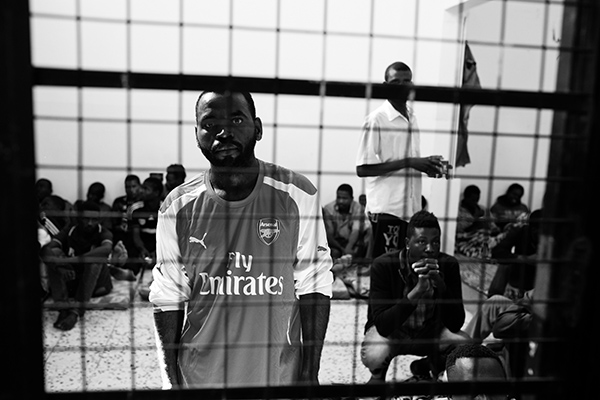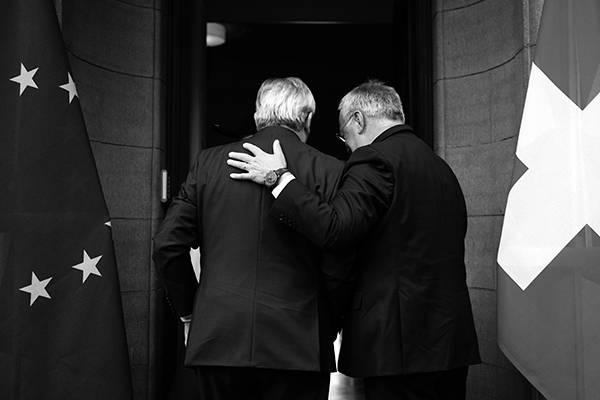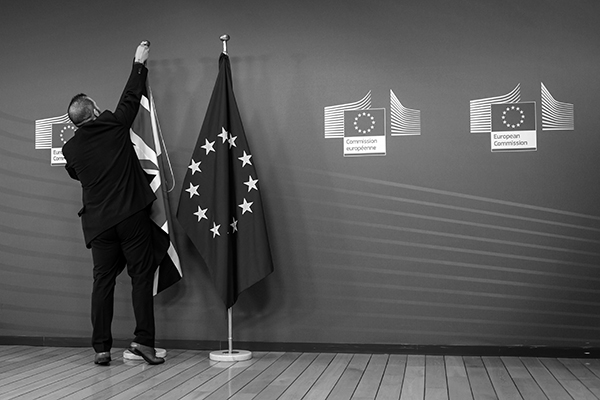1. Institution, Domicile, Composition, Secretariat and Finances
Art. 1 Mission
1. The Swiss Press Council serves the public and the media as an appeals board in regard to media ethics. The activities of the Press Council should lead to a reflection on basic problems of media ethics and thereby instigate discussion of ethical problems involving the media within the public and editorial offices.
2. The Swiss Press Council looks into complaints brought to it or takes a stand itself on questions regarding the professional ethics of journalists. The Press Council defends press freedom and the right to freedom of speech.
3. Decisions of the Swiss Press Council are based on the «Declaration of the Duties and Rights of the Journalist» (including protocols relating to the extension of the membership of the Press Council to publishers and radio/television organizations), related directives issued by the Press Council as well as the practice of the Press Council. The Swiss Press Council can also draw on foreign and international codices when making its decisions.
Art. 2 Area of Responsibility
The area of responsibility of the Swiss Press Council – regardless of the form of distribution – covers editorial content of all public, periodic or current media as well as journalistic content that is published individually.1
1Text follows a decision of the Swiss Press Council from November 27, 2018, in force since Januar 1, 2019
Art. 3 Domicile
The Swiss Press Council is domiciled at its Secretariat.
Art. 4 Composition
1. Some 21 members sit on the Swiss Press Council. Six of these members represent the general public. They are not media professionals. The other members of the Press Council are journalists or are otherwise deeply involved in the publishing side of the media. Members of the «Swiss Press Council» Foundation are not eligible.
2. At least six members of the Press Council must come from French-speaking Switzerland and at least two from Italian-speaking Switzerland. When possible the Romansh language group must also be taken into account. The president and the two vice-presidents cannot come from the same language group.
3. Each gender has at least eight seats.
4. Swiss Press Council meetings are held in the three seven-person Chambers which are presided over by the president and the two vice-presidents. The Presidium (the president, the two vice-presidents and the executive director) determines the composition of the Chambers.1
5. The Board of the «Swiss Press Council» Foundation elects the Press Council’s president, the two vice-presidents and its members for a period of four years. Reelection for a second and third term is possible. When elected to the Presidium for the first time, the limitation on the term of office begins anew.
1Text follows a decision of the Swiss Press Council from December 18, 2020, in force since Januar 1, 2021
Art. 5 Secretariat
1. The Secretariat of the Swiss Press Council is headed by an executive director.
2. The executive director is appointed by the Board of the «Swiss Press Council» Foundation with the agreement of the Press Council’s Presidium.
3. The duties and rights of the executive director are laid down in a contract.
Art. 6 Finances
1. The expenditure of the Press Council is governed by a budget set by the «Swiss Press Council» Foundation.
2. The executive director is responsible for the financial accounts.
II. Procedure
Art. 7 Legitimation
1. There is no restriction on who can bring complaints before the Swiss Press Council.
2. The Swiss Press Council can of its own accord bring topics or cases before the Press Council if a majority of members are in agreement.
Art. 8 Initiating Proceedings
1. A proceeding before the Swiss Press Council is opened by the submission of a complaint or through a decision of the Plenum of the Press Council.
2. Complaints to the Swiss Press Council should be made with the full address and handwritten signature of the complainant per conventional or electronic mail.
Art. 9 Substantiation
1. Reasons must be given for the complaint.
2. The complaint outlines the facts of the case and explains why the media report offends conditions of the «Declaration of the Duties and Rights of the Journalist».
3. Furthermore, it must say if the case is the subject of a pending broadcasting law or judicial complaint or if such a complaint is likely to be made.
4. A copy of the media report, which is the subject of the complaint, is to be provided.
Art. 9a Flawed applications
Flaws such as failure to supply a signature and a power of attorney are to be corrected within a given extended period. Otherwise the application is viewed as unsuccessful. The same applies to incomprehensible, obviously unobjective or lengthy submissions, i.e. those exceeding 20 pages.1
1Text follows a decision of the Swiss Press Council from April 20, 2021, in force since May 1, 2021
Art. 10 Submission of Complaint; Structuring the Complaint
1. The executive director confirms to the complainant that the complaint has arrived.
2. The executive director structures with the president and the two vice-presidents the proceeding in regard to the complaint.1
1Text follows a decision of the Swiss Press Council from December 18, 2020, in force since Januar 1, 2021
Art.11 Grounds for Non-Acceptance of Complaint
1. The Swiss Press Council does not handle complaints if:
– the complaint does not come within its area of competence (Art. 1 Par.4);
– the complaint is clearly unfounded;
– the complaint does not involve professional ethics;
– the accused media or the journalist has with regard to a case of minor relevance already apologized publicly and/or taken measures to correct a mistake1;
– publication of the media report is more than three2 months old;
a parallel proceeding is pending or foreseen, particularly before the courts or broadcasting appeals board.
1Text follows a decision of the Swiss Press Council from November 27, 2018, in force since Januar 1, 2019
2Text according to a resolution of the Board from April 12 2016, in force since January 1 2017.
2. If a basic problem of professional ethics is involved, or the publication, which is the subject of the complaint, instigates a wide public discussion, the Swiss Press Council can enter into the case even if a judicial or broadcasting appeal is pending or if the complainant enters such an appeal during the proceeding of the Press Council.
3. Reasons for non-acceptance will be summarily stated and communicated to the complainant. In exceptional cases, the Press Council can explain a non-acceptance decision in a detailed report (Art. 17). If a complainant demands a detailed non-acceptance report, she/he will be charged an appropriate cost per hour. Such costs are to be paid in advance of delivery.
Art. 12 Exchange of Correspondence
1. If the Press Council Presidium holds the view that the complaint should be entered into, the executive director asks for the viewpoint of the media outlet which is the subject of the complaint or of the involved journalist.1
2. After receiving the answer to the complaint from the involved media, the Presidium decides at its own discretion about the further handling of the case. The involved parties have no right to a second exchange of correspondence.
3. The executive director informs the parties involved as to the further procedure and to the composition of the responsible Committee (Art. 13).
1Text follows a decision of the Swiss Press Council from November 27, 2018, in force since Januar 1, 2019
Art. 13 Responsibility of the Presidium, Chamber and Plenum
1. The Presidium handles claims that the Press Council does not enter into (Art. 11), as well as claims which have been the subject of earlier cases in their basic principles or appear to be of secondary importance.1
2. The Presidium assigns the other claims, which it enters into, to one of the three Chambers.
3. If a complaint involves basic professional ethics, the Presidium or respectively the responsible Chamber can call on the Plenum at each stage of the proceedings.
1Text follows a decision of the Swiss Press Council from September 8, 2021, in force since October 1, 2021
Art. 14 Challenges
1. Reasoned objections to the composition of the responsible body are to be submitted within 10 days of notification according to Art.12 Par.3.
2. The Presidium decides on challenges. If the challenge involves a member of the Presidium, the decision is made by the other three members.1
3. A challenge is to be approved if there is a special closeness to one of parties or to the subject that could considerably limit competence to reach a fair decision.
4. After a decision is made, the Press Council does not pursue further correspondence regarding challenges.
1Text follows a decision of the Swiss Press Council from December 18, 2020, in force since Januar 1, 2021
Art. 15 Abstention
1. Members of the Swiss Press Council abstain from participating if they see themselves as unable to make an unprejudiced decision.
2. A reason for abstaining is established in particular if the Press Council member works for the media involved or had done so in the last three years.
Art. 16 Consultation
1. The Presidium’s consultations usually take place by correspondence.
2. Consultations of the Chambers and of the Plenum take place through meetings and correspondence.
3. The Press Council can open the consultations of its Chambers to the public.
Art. 17 Positions of the Press Council
1. The results of consultations will be retained in a written position of the Swiss Press Council.
2. The Press Council can make declarations and recommendations in the positions taken. The Council cannot sanction. A position supports or rejects the complaint in whole or in part. When taking a position, the Council is free to limit a decision to the essential reasons for the complaint. If justified, the Press Council can give a detailed account of a decision not to enter into a complaint.1
3. The final adoption of all positions of the Press Council by the Plenum is by correspondence.
4. If at least two members of the Press Council within 10 days of receipt of the position request a discussion of it within the Plenum, the position is to be put on the agenda of the next plenary session.
1Text follows a resolution of the Swiss Press Council Foundation from November 21, 2017, that is in force since January 1, 2018.
Art. 18 Distribution and publication of Positions
1. The executive director informs the involved parties of the position taken by the Press Council before publication.
2. The position of the Press Council is published on the website www.presserat.ch.
Art. 19 Final Position and Amendments
1. The positions of the Swiss Press Council are final.
2. The Press Council reserves the right to amend positions if incorrect facts are involved.
Art. 20 Cost of Proceedings
1. A proceeding before the Press Council is free of charge for private applicants. However, for the third complaint within a calendar year, a fee of Swiss francs 500 is charged, from the fourth onwards a fee of Swiss francs 1000.2
2. Complainants who are represented by a lawyer as well as organizations, firms and institutions pay a fee of Swiss francs 1,000.1
3. The fee is to be paid in advance. Based on a well-founded request, the Press Council secretariat can excuse the fee for cases in accordance with para. 2, provided that the contribution to costs cannot be raised. In the case of private individuals pursuant to para. 1, this shall apply from the third appeal onwards only if fundamental questions of professional ethics arise.. A decision is final.2
4. There are no costs charged for the proceedings or to the parties involved.
1Text follows a resolution of the Swiss Press Council Foundation from November 21, 2017, that is in force since January 1, 2018.
2Text follows a resolution of the Swiss Press Council Foundation from April 20, 2021, that is in force since May 1, 2021.
III. Reporting and Execution of Regulations
Art. 21 Annual Report
The president of the Swiss Press Council reports annually to the Board of the «Swiss Press Council» Foundation on its activities.
Art. 22 Regulations
In particular, the Swiss Press Council can decide the following with a simple majority:
a. Directives for the «Declaration of Duties and Rights of a Journalist»;
b. Business Regulations of the Swiss Press Council.
IV. Cooperation
Art. 23 Cooperation with other Institutions
The Swiss Press Council cooperates with the Swiss media’s ombudspersons, with foreign press councils and other similar institutions.
V. Final Provision
Art. 24 Entry Into Force
This set of regulations entered into force as of October 1, 2021. It replaced regulations last revised in April 20, 2021, and in force from May 1, 2021.









